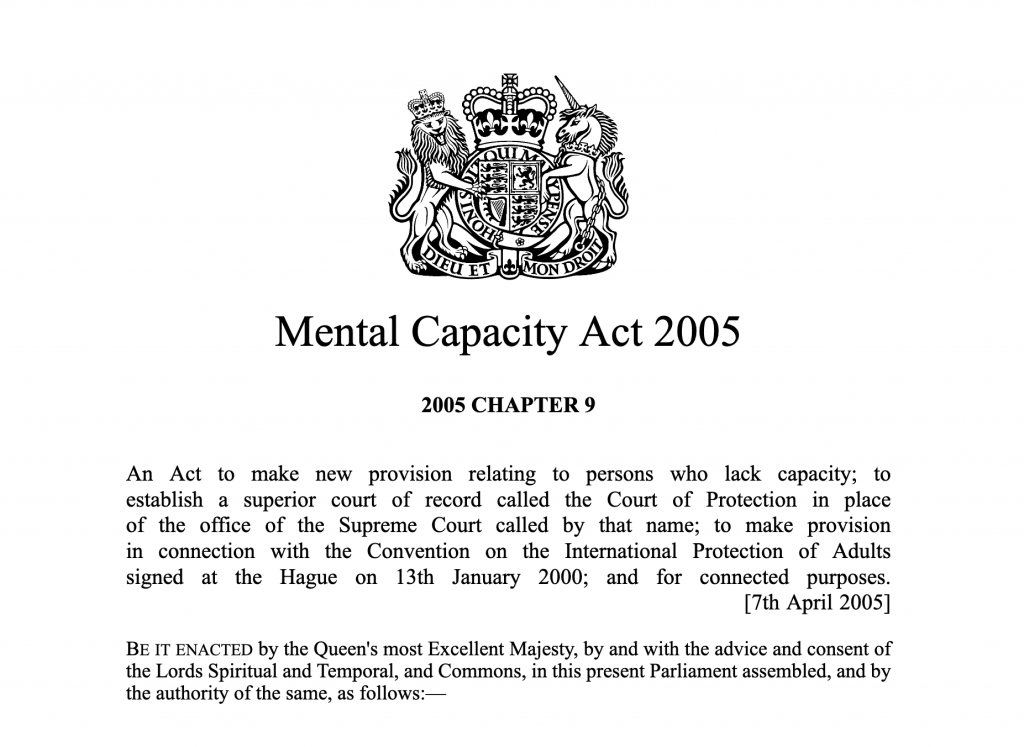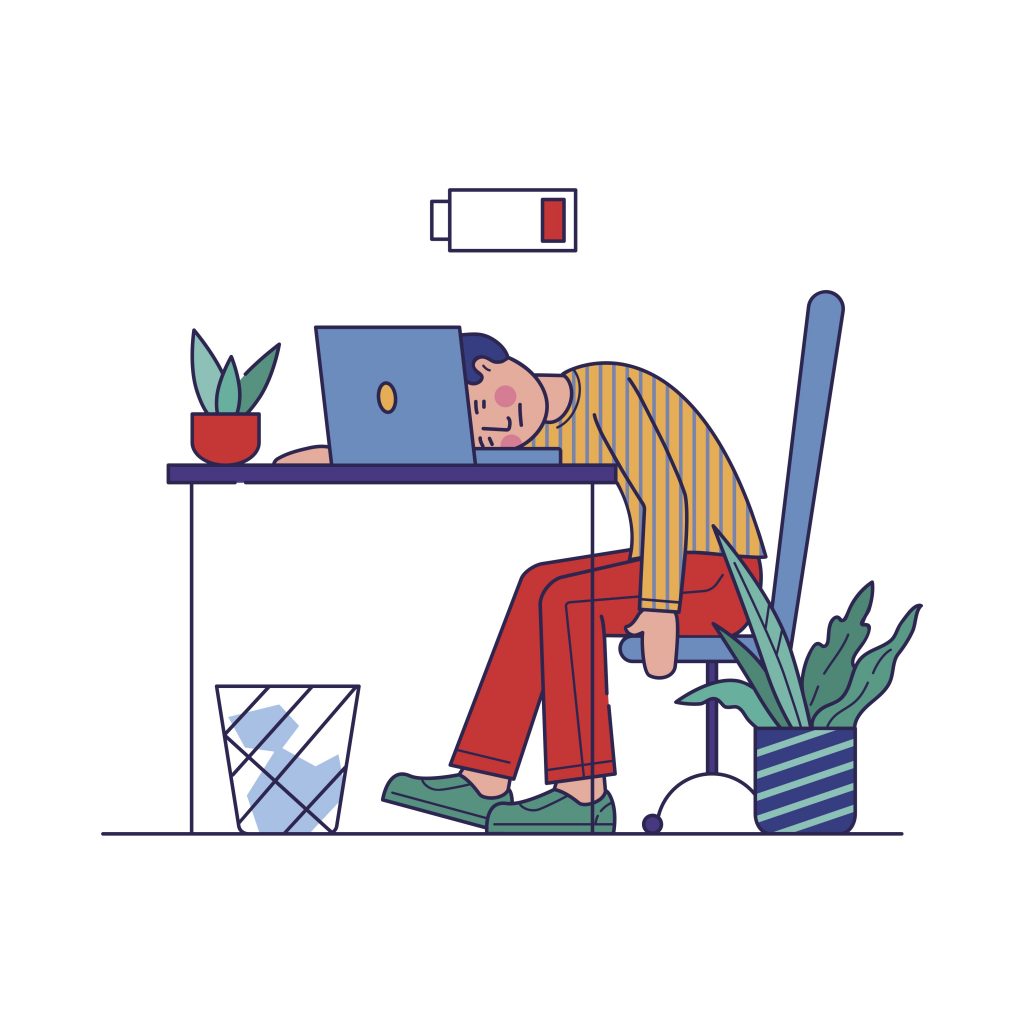Alex Ruck Keene is a barrister, educator and writer specialising in the topics of mental health and capacity law. He is the creator of the Mental Capacity Law and Policy website, and edits the 39 Essex Chambers Mental Capacity Law Report which has been hailed as a ‘bible’ by Chambers & Partners for practitioners in the area. We spoke with Alex about the current legislation surrounding mental health and capacity, exploring confusions and misconceptions, and the need for legislative reform.

What would you say is the biggest difference between a layperson’s understanding of mental health and the legal definition of it?
One of the differences is that the layperson may use ‘mental health’ without necessarily sitting down and thinking about the exact meaning. The lawyer would ask, “what do you mean by mental health?”, and what context you’re asking it in. For instance, are you using it in a criminal context to ask questions about whether a person should be pleading not guilty by reason of insanity? Or are you using it in the context of the Mental Health Act (MHA) to ask whether the person should be detained for assessment and treatment? Or are you using it in the context of looking at duties the state might have to support people’s health and wellbeing?
Do you feel that the current assessment for mental capacity sufficiently captures the nuances of problems across the mental health spectrum?
In principle, the test in England and Wales set down in the Mental Capacity Act (MCA) is perfectly capable of identifying if a person is able to make a decision or not. In practice, it can break down quite often. Sometimes, it breaks down – bluntly – because the assessor doesn’t listen to the person being assessed. Sometimes, it’s genuinely very difficult to tell if the person has capacity, and there can be some very complex decisions to be made. For instance, if a person with bipolar disorder has fluctuating capacity to make decisions, it could then be difficult to say if they have or lack capacity at a given moment in time to make a specific decision. This is why the law always falls back on reasonable belief and balance of probabilities.

In almost all situations, assessment of capacity is nothing more or less than a conversation. Assessment may be done by some other way if the person can’t communicate verbally, but most of the time it’s done by way of talking to the person and forming a conclusion one way or another. It’s not like you can do a blood test and say, “this person has or lacks capacity”. It’s one human sitting in judgment on another, and this always builds in the possibility for fallibility.
Do you feel that legislation is effective at addressing mental health concerns?
You need to take it in stages and think about which legislation you’re talking about. If you’re talking about the MHA, that’s a very limited piece of legislation applied in extreme situations and crisis. It regulates the assessment, admission and treatment for mental disorder, under coercion if required.
There are other pieces of legislation which are supposed to support people so they don’t get into crisis. This could include employment legislation to ensure that employers take steps to secure their employees’ wellbeing, or duties placed on local authorities under the Care Act to support people with care needs, which could include in relation to their mental health. One of the big issues is the extent to which these other legislation do their job to support people’s mental health. If they don’t do the work that we’re wanting them to do, we end up with a backstop of a person being in crisis and the only thing which can now be done is to admit and treat them, potentially under circumstances of coercion. At that point, it’s effectively an admission of systems failure. The MHA is there but it’s not the first line.
Are there any reforms that you think should be made?
One could say that the law should be doing more to make sure people are given greater opportunities, to set people up as well as possible to make sure that their mental wellbeing is upheld. Many problems to do with mental ill health or wellbeing have nothing to do with law per se; they have to do with socio-economic background, racial disparity, and other situational aspects.
If you’re talking narrowly, the MHA is definitely in need of reform. It doesn’t properly grapple with and reflect the need of individuals who still have the ability to express what they would and would not like, even though they might be in serious crisis. At the moment, a good doctor can work within framework to give care in a way that responds to the person’s own needs, but the MHA doesn’t provide the systemic framework to say that the starting point should be that a person can be fairly clear about what they want and don’t want even if they are unwell. The government will hopefully respond to the reforms and proposals put forward by the independent review of the MHA by the end of the year.
What has been the biggest change you’ve seen in mental health law from when you first started practising to now?

The biggest change is the fact that since I started practicing, the MCA came into force, and has now been in force for 13 years. There’s an increasing understanding of the overlap between mental health law and mental capacity law, which is very large but not complete. There are many people with mental health conditions who have capacity to make their own decisions, so mental capacity law would not be relevant. Although the MCA is still not well implemented in many areas, it’s definitely permeated a lot of areas in people’s thinking and practice. It’s also been a big change seeing how junior doctors think about capacity now, compared to how your average junior doctors were thinking about things back in 2007.
Has the shift in thinking been a wider trend in society, or just within the legal profession?
For years and years, the Court of Protection was called ‘The Secret Court’ as it used to sit in private but now sits in public, subject to reporting restrictions. If you see the press coverage, it is really obvious that it deals with issues that people don’t know how they feel about. For instance, is it in the best interests of a woman with learning disabilities to have a termination if it is not felt that she is in a position to understand what having a baby entails? Is it in the best interests of someone to donate stem cells to their mother? Is it in the best interests of a young Muslim man, with profound learning disabilities, to have his body hair shaved off to comply with the tenets of Islam? Is it in the best interests of a man, who is now in a coma but used to be a lifelong football supporter, to donate his money to a football charity? These are all sorts of things which have been in the Court of Protection and received press coverage because they’re big questions that people don’t quite know how to think about.
Do you think it’s a good idea to have a whole separate court dedicated to issues of mental health and capacity?
I think having a specialist body is really important, because you build up the specialist knowledge required. We are lucky to have a dedicated court which thinks about mental capacity issues and publishes judgment in the more serious cases, allowing people to go, “what do I think?”.
There’s a very interesting question about whether it is better that it sits as one judge, or whether it is better to have a system with a lawyer, and somebody non-medical or non-legal with lived experience, who can sit down and think more broadly.
How did you come to work in mental health law?
I’ve always been interested in public law, in how law influences policy and vice versa, and did quite a few cases relating to mental health law because it was an area that my Chambers were known for. When the MCA came in, I did the first hearing by complete fluke because a more senior member of Chambers could not do it. I found it immediately fascinating and was also in a position of knowing just as much as anyone else about it.

What I really like and find interesting about the area is that it’s about 1% law and 99% ethics. Both the MCA and the MHA are very good at telling people things such as, ‘this is how I could find you to lack capacity’, or ‘this is how I could find you to have a mental disorder of a nature and degree warranting admission for assessment’. They’re very bad at saying, ‘should I find you to lack capacity or have a mental disorder?’, and this then digs into ethics, professional understandings of mental disorder, and good social work practice. Within the MCA and MHA, more or less every word in the Act is doing something interesting and important; it’s a word, but it carries a huge amount of underpinning considerations that are found in places outside the law.
I now spend an enormous amount of my time not in court. I am not really bothered about whether I looked at mental capacity and mental health by arguing a case in court, or by helping a group of palliative care clinicians. Now, I do it in a range of different places, of which only a small part is turning up in court or doing legal written advices, the stuff that barristers traditionally do.
Would you be happy and comfortable to share your own experiences of mental health?
It is well-known what a demanding profession being a barrister is, and it quite often attracts a certain personality type who is very demanding on oneself. At one level, there is only so much you can do before it is just too much.
About 8 or 9 years ago, I did an enormous case where the incongruence between what I was being asked to do and how I was feeling about it draining to work with for over two years. I was doing other things alongside it, and it didn’t help that I had extremely small children at the time, so there wasn’t a great deal of sleep. Eventually, that wore me down, and my body then said, “that’s it. I’ve done enough”.

Luckily, I was given support by my chambers and by my very good clerks, and I had the space within which to take stock. I took a year off, wrote a book, and did some thinking about what’s important.
The single most important thing which I learnt was that, if there isn’t an alignment between your values and what you’re doing, you are continually adding to your level of stress. If it’s a job from 9am-5pm, you can go and do something completely different after work but if you are a barrister, it’s all-consuming because the task needs to be done and the message is that the buck stops with you.
What was most helpful about the support that your chambers gave to you?
What was good was that they were a group of people who were bothered. One of the things is that they have seen it all-before. So many barristers and solicitors get burnt out, that people who have been working as clerks or who are more senior would have seen it happen before with others. They can say, this has happened before, this is a good strategy, this is how one can think about it. The wider problem is that no one ever talks about it, it’s always pretending nothing happens.
What advice would you give to your younger self?
Identify whether you want to know a lot about one thing or know very little about a lot of different things. If you try and pretend you’re one personality type but you’re the other, it’s really stressful. Many people, particularly at the Bar, like jumping from one subject to another and they’ll get instructed on the most random range of things – at one point I knew an enormous amount about signals outside Paddington Station because I’d been involved in a rail crash inquiry, then I knew a lot about painting Boeing 737’s from a different case. At one level, it’s fascinating, but I found it draining continually to have to find ways to get up to speed on all those different things. I’m much more comfortable going, “I know a lot about one area and I don’t care where I do it”. Also, I would have asked more questions about why exactly I’m going into being a barrister. What exactly are you wanting to get out of this? Are there things you could be getting out of this which you could be getting out in other ways? Although the answer is probably not, at least I’d have asked myself that question as opposed to jumping straight into it.

Many thanks to Athena Kam for this interview in the Mental Health and Wellbeing interview series. Athena is a second year law student at the University of Oxford, with a view of becoming a barrister one day.
She is the forthcoming Secretary for the Oxford University Bar Society, having previously held the position of Mooting Officer. She hopes to help push for a more inclusive and mental-health legal profession.

